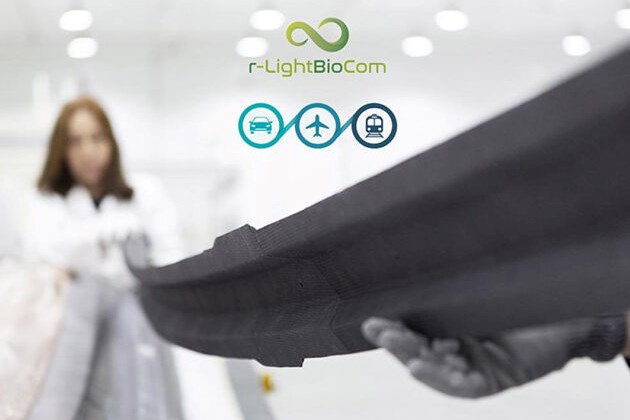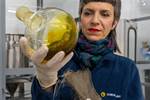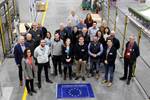Aciturri joins r-LightBioCom project for bio-based HPC advancement
A catalog of novel, sustainable composites, including bio-resins, biomass-derived nanofillers and additives, fiber-based textiles and corresponding technologies, will be developed during this three-year EU project.

Photo Credit: Aciturri
Aerospace fabricator Aciturri (Miranda de Ebro, Spain) announces its participation in the r-LightBioCom (new bio-based and sustainable Raw Materials enabling Circular Value Chains of High Performance Lightweight BioComposites) project. The goal of this project is to reduce the environmental impact of new high-performance composite (HPC) materials, not only during their production, but also during their operational life and subsequent recycling.
Thanks to its experience in the use and manufacture of composite materials for aeronautics, Aciturri’s task is to characterize the new materials development, as well as carry out a use case to verify the validity of the new components and their fulfillment of performance requirements for their implementation in the aviation sector.
Coordinated by the Spanish research center Aitex (Alicante), r-LightBioCom brings together 15 multidisciplinary players from research and the automotive, aeronautics and construction industries across Europe, promoting a paradigm shift in the existing value chains for advanced lightweight composites. The €4.2 million project, funded by the European Commission, started on Jan. 1, 2023 and will run until June 30, 2026.
The project has been selected under the EU’s Horizon Europe research and innovation program to develop new bio-based HPCs that with significantly reduced environmental impact throughout their entire lifecycle, together with technologies and tools for sustainable composite design, modeling and processing. While current HPCs and sustainable processing technologies bring many benefits, they are limited to large sectors due to long processing times, high costs and low recyclability.
To exceed these limitations, the r-LightBioCom consortium will enable new circular value chains, reducing the use of fossil resources as well as the generation of HPC waste, thus contributing to the EU greenhouse gas emission compliance targets for 2050.
A catalog of new advanced HPC materials will be developed, and will consist of at least:
- Three new types of bio-resins;
- Four new biomass-derived nanofillers and additives; and
- Three families of sustainable fiber-based textile products.
Two new fast and efficient curing techniques combined with recycling technologies will be developed for the new material portfolio as well.
In addition, standardization of design, modeling and optimization will be promoted for continued sustainable growth of the portfolio and the inclusion of new families of lightweight, recyclable and bio-based HPCs at a more competitive cost.
The consortium, led by Aitex, is formed by Acciona Construcción, Centro Ricercje FIAT, Universitat Politècnica de Catalunya, Hochschule Kaiserslautern, Coventry University, Leibniz-Institut für Verbundwerkstoffe GmbH, DLR and CIDAUT; in addition to AEP Polymers, Feyecon, FECSA and now Aciturri.
More about the project can be viewed here.
Related Content
-
Novel composite technology replaces welded joints in tubular structures
The Tree Composites TC-joint replaces traditional welding in jacket foundations for offshore wind turbine generator applications, advancing the world’s quest for fast, sustainable energy deployment.
-
Watch: A practical view of sustainability in composites product development
Markus Beer of Forward Engineering addresses definitions of sustainability, how to approach sustainability goals, the role of life cycle analysis (LCA) and social, environmental and governmental driving forces. Watch his “CW Tech Days: Sustainability” presentation.
-
Plant tour: Arris Composites, Berkeley, Calif., U.S.
The creator of Additive Molding is leveraging automation and thermoplastics to provide high-volume, high-quality, sustainable composites manufacturing services.












.jpg;maxWidth=300;quality=90)



